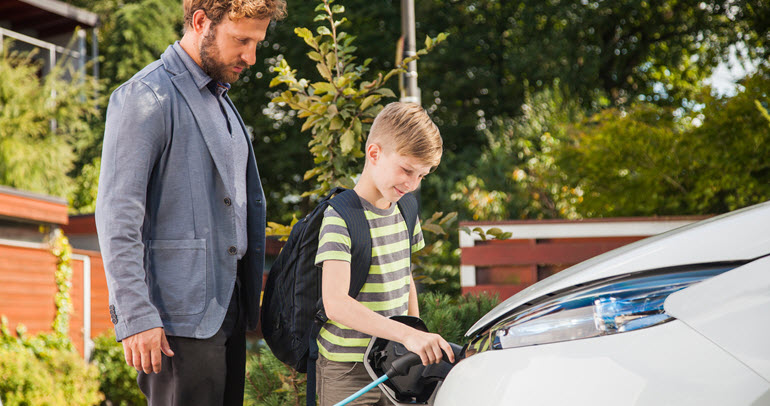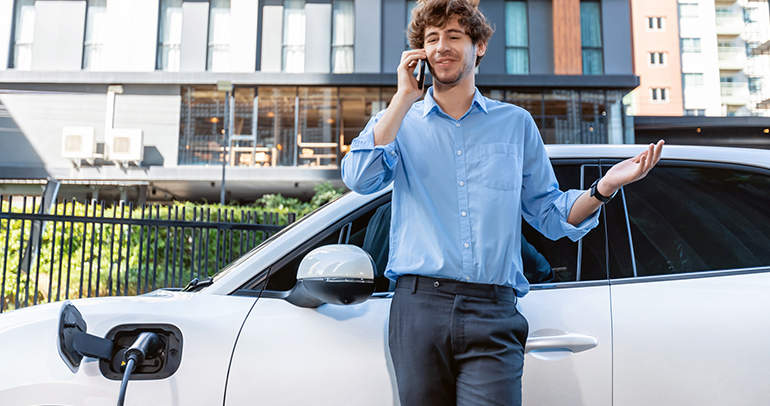
As the world continues to grapple with the COVID-19 pandemic, many consumers and businesses continue to ask themselves “what now?” and “what next?” Despite this lack of certainty, a rapid convergence of two pandemic-created trends makes this the time for utilities to take bold leadership positions on electric vehicles (EVs).

First, drastic declines in vehicle use have provided consumers with stunning evidence of what the world looks like without traditional gas vehicles. From India, where cities are getting the first views of the Himalayas they’ve had in decades, to Los Angeles, where photos of the city’s iconic skyline without smog have gone viral, to Atlanta, where meteorologists are sharing evidence of drastically lower air pollution, people can see the difference not having tailpipe emissions makes. They can also feel it with the better air quality making life significantly easier for people with chronic respiratory conditions.
This is leading to increased consumer interest in EVs. Although new-vehicle sales have collapsed worldwide, there is evidence from China, Europe and even the US that electric models have weathered the storm better and are gaining market share.
Second, historic job losses have put many consumers in a position where they may be unable to pay their utility bill—if not now, then in the coming months. While many utilities can recover these bad debts through a regulatory asset, the scope of the economic crisis means that this cost recovery is going to put a more significant upward pressure on rates than it has historically. Additionally, since many electric utilities rely heavily on natural gas generation, fuel costs will increase as supplies become constrained.
EVs give utilities a way to counterbalance this one-two punch of upward rate pressure. Utilities typically have a greater percentage of fixed costs than variable costs, so selling more energy to charge EVs allows utilities to spread those fixed costs over a larger base. According to Tim Jarrell, power supply VP for Cobb EMC, one of the largest co-ops in the country, “when we sell more energy due to EV charging, it benefits all customers because there are more kilowatt-hours to spread the fixed costs as we better utilize our power plant portfolio. The utility wins through lower distribution upgrades, less emissions, potential reduction in peak demand and greater revenue from on- and off-peak energy sales.”
The caveat is that these benefits accrue only when the majority of charging is done off-peak, usually overnight. Darren Epps, electric transportation manager at Georgia Power, said, “our typical analyses are heavily reliant on the timing of charging, which is most economical when it happens at night.” However, Epps said that these analyses show that EV charging on Georgia Power’s system has marginal revenues that are greater than the marginal costs to serve, translating into downward pressure on rates over the long run.
Escalent recently conducted the largest national study on EV buyers to date, EVForward. The study yielded insight on consumer motivations and behaviors that can be applied to help increase adoption of EVs and utility EV programs. If you’re interested in learning how you can use these findings to accelerate your utility’s electric vehicle programs to lean in to these trends, please send me a note.








